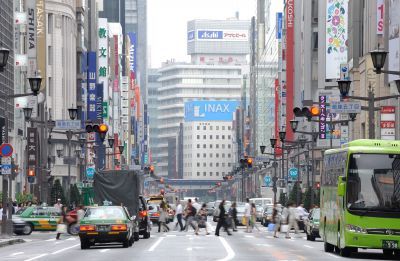Tourism to Japan battered by strong yen, economic downturn

Your support helps us to tell the story
From reproductive rights to climate change to Big Tech, The Independent is on the ground when the story is developing. Whether it's investigating the financials of Elon Musk's pro-Trump PAC or producing our latest documentary, 'The A Word', which shines a light on the American women fighting for reproductive rights, we know how important it is to parse out the facts from the messaging.
At such a critical moment in US history, we need reporters on the ground. Your donation allows us to keep sending journalists to speak to both sides of the story.
The Independent is trusted by Americans across the entire political spectrum. And unlike many other quality news outlets, we choose not to lock Americans out of our reporting and analysis with paywalls. We believe quality journalism should be available to everyone, paid for by those who can afford it.
Your support makes all the difference.Foreign visitor numbers to Japan last year plunged at the fastest pace in nearly four decades due to the global recession, a strong yen and the swine flu scare, official data showed Monday.
A total of 6.79 million foreign tourists and business travellers came to Japan in 2009, down 18.7 percent from a record 8.35 million the previous year, the Japan National Tourism Organisation (JNTO) said.
"We believe Japan has a lot to attract foreign tourists, but the year 2009 was hit by the yen's rise, which made trips to Japan more expensive when the travel industry was reeling from an economic slump," a JNTO researcher said.
"Scares over the new influenza also contributed to the drop," he said.
The fall was the sharpest since 1971, when arrivals dropped 22.7 percent from the previous year when an international exposition was held in Osaka, according to the organisation for tourism research and promotion.
Japan's new centre-left government, which took power last summer, is hoping to boost tourism as a cash earner for the country whose population is shrinking.
Tourists have been drawn by Japan's traditional culture and scenic beauty but also its pop culture, from anime to fashion, and its high-tech products.
Common complaints from tourists include that fewer shops accept credit cards than in other developed countries and that not many people speak foreign languages, said JNTO researcher Naoki Morikawa.
Morikawa said that foreign visitor numbers to Japan had increased over recent decades - from 2.84 million in 1989 to 4.44 million in 1999.
The largest number came from South Korea, followed by Taiwan and China.
Travellers arriving from South Korea last year tumbled by 33.4 percent to 1.59 million, accounting for 23 percent of the total number.
Arrivals from Taiwan fell 26.3 percent to 1.02 million, but those from mainland China edged up 0.6 percent to a record one million.
Chinese arrivals kept rising for five months in a row from August, a month after Japan started issuing visas to individual Chinese due to growing demand for non-group travel between the two countries.
Join our commenting forum
Join thought-provoking conversations, follow other Independent readers and see their replies
Comments